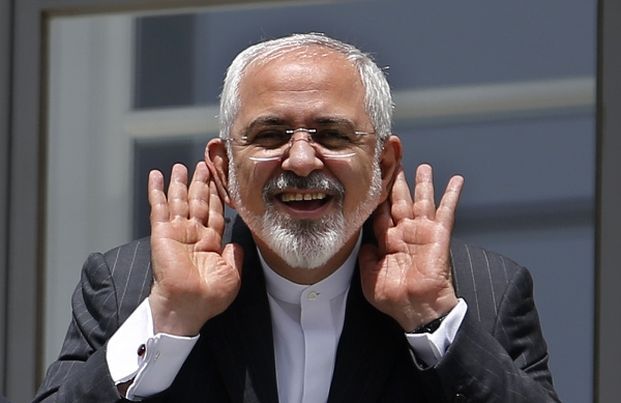
The UN is set to announce the lifting of sanctions on Iran today after Tehran scaled back its nuclear programme.
The International sanctions had suffocated Iran’s ability to trade with the west, and was put in place to force anti-western Iran to negotiate on its nuclear programme. The lifting of the sanctions will be marked as a great achievement for U.S. President Barrack Obama and Secretary of State, John Kerry as well as their European partners.
In Iran it will be celebrated by President Hassan Rouhani, and Foreign Minister Javad Zarif, the face behind the new pro-western Iran. It could usher in a new era in trade between the east and the west, with Iran acting as a middle man on the silk road like the old Persians used to do, as well as ending the turmoil in the Middle East.

BYPASS THE CENSORS
Sign up to get unfiltered news delivered straight to your inbox.
You can unsubscribe any time. By subscribing you agree to our Terms of Use
On the other hand if the hard-liners in the US, Iran and the Sunni world have their way, then road blocks could appear on the ancient silk road that connects the Mediterranean to the Pacific.
The Daily Mail reports:
Foreign Minister Javad Zarif arrived in Vienna, headquarters of the International Atomic Energy Agency, the U.N. body expected to issue a report triggering the lifting of sanctions imposed by the United Nations, United States and European Union.
Most of the sanctions will be removed today, freeing up the country’s economy which has previously been suffered reduced exports.
‘Today with the release of the IAEA chief’s report the nuclear deal will be implemented, after which a joint statement will be made to announce the beginning of the deal,’ said Zarif.
‘Today is a good day for the Iranian people as sanctions will be lifted today,’ he declared.
Zarif is due to meet his U.S. counterpart John Kerry, the European Union’s foreign policy chief Federica Mogherini, and IAEA chief Yukiya Amano later today.
‘Implementation day’ of the nuclear deal agreed last year marks the biggest re-entry of a former pariah state onto the global economic stage since the end of the Cold War.
It also marks a turning point in the hostility between Iran and the United States that has shaped the Middle East since 1979.
It is a defining initiative for both U.S. President Barack Obama and Iran’s President Hassan Rouhani, both of whom faced strong opposition from hardliners at home in countries.
Under the deal, Iran has agreed to forego enrichment of uranium, which world powers feared could be used to make a nuclear weapon. Once sanctions are lifted, Iran plans to swiftly ramp up its exports of oil. Global companies that have been barred from doing business there will be able to exploit a hungry market for anything from automobiles to airplane parts.
The deal is opposed by all of the Republican candidates in the field vying to succeed Obama as U.S. president in an election in November, and is viewed with deep suspicion by U.S. allies in the Middle East including Israel and Saudi Arabia.
It is supported by Washington’s European allies, who joined Obama earlier in his presidency in making sanctions far tighter as part of a joint strategy to force Tehran to negotiate.
The Obama administration says the deal reached last July offered the best possible prospect of ensuring that Iran would not develop a nuclear weapon, and could never have been achieved without the support of allies, which was always contingent on a pledge to lift sanctions once Iran complied.
For Iran, it marks a remarkable achievement for Rouhani, a pragmatic cleric elected in 2013 in a landslide on a promise to reduce Iran’s international isolation.
He was granted the authority to negotiate the deal by Supreme Leader Ayatollah Ali Khamenei, an arch conservative in power since 1989.
The U.S.-educated, fluent English-speaking Zarif has emerged as the smiling face of Iran’s diplomacy, developing a close rapport with Kerry in unprecedented face-to-face talks. Zarif has chipped away at Iran’s image as a pariah state, to the dismay of hardliners in Tehran as well as regional rivals.
‘There are some people who see peace as a threat, who were always against (the nuclear deal) and will continue to oppose it,’ he was quoted as saying by ISNA.
The prospect of Iran’s emergence from isolation could overturn the geo-political balance of the Middle East at a particularly volatile time.
Edmondo Burr
CEO
Assistant Editor
Latest posts by Edmondo Burr (see all)
- Police Arrest Suspect In Supermarket Baby Food Poisoning - October 1, 2017
- Seoul Secures Data From Electromagnetic Interference By N Korea - September 30, 2017
- The ‘World’s First Internet War’ Has Begun: Julian Assange - September 30, 2017


Be the first to comment